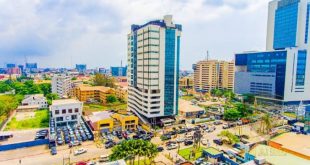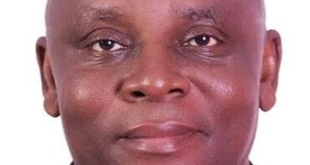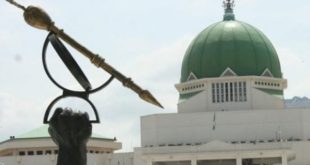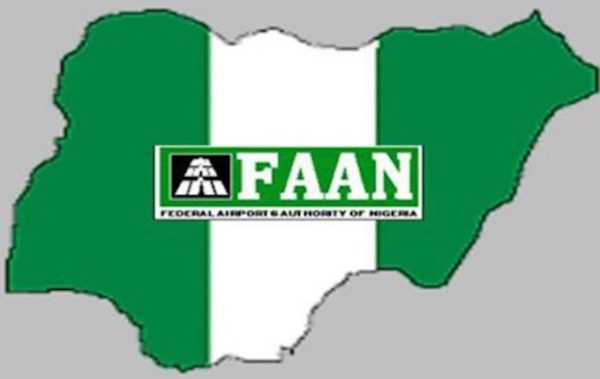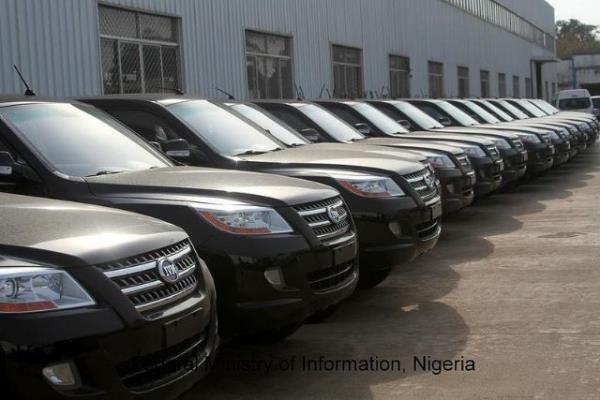
Potentially, the Presidency’s recent disclosure of a plan by the Federal Government to buy locally assembled cars is one way to redeem the country’s economy from one of its self-induced drain. The plan is not new, having been touted and jettisoned many times over the past 20 years or more. Obviously, there has been no political will to prosecute it; and there is nothing to indicate that the government has changed its attitude. If anything, government’s pronouncement seems to be another automatic response to the depressive state to which the economy is tending.
Yet, if implemented, the plan is capable of not only stopping importation of vehicles for official use, which drains the economy of scarce foreign exchange; it can actually be used to revamp the economy out of recession and into a boom. In particular, it will go a long way in providing jobs, and thereby reducing the danger of implosion from millions of idle hands in the country.

To show any seriousness in its proposal, government must first put in place critical infrastructure, such as the vehicle assembly plants, regular power supply, reactivation of the Ajaokuta Steel Company, a conducive business environment that will attract foreign investors, and of course adequate security of lives and property. Very sadly, these necessities are missing amid rising instability of social indices.
Government’s plan to buy locally made vehicles was disclosed by Vice President Yemi Osinbajo, speaking on behalf of President Muhammadu Buhari at the opening session of the 26th Nigerian Economic Summit Group Conference themed ‘Building partnerships for resilience.’

Nigeria’s insatiable appetite for foreign cars has made the country a dumping ground for all kinds of disused vehicles. The country is the ultimate loser so long as it is hooked on the importation craze unlike in the past when vehicles that were assembled in Nigeria were mandatorily used by government officials.

In the 70s, the Olusegun Obasanjo military regime enforced a patriotic policy that mandated all government official vehicles to be locally assembled vehicles. That positively boosted local auto components development. Peugeot cars were the official vehicles then, and the producing company, Peugeot Automobile of Nigeria (PAN) was able to source over 40 per cent of components locally, apparently, in readiness for full local manufacturing in the country. But successive administrations abandoned the policy in favour of imported cars, which has contributed to killing the local auto industry.
There is a need for a paradigm shift to promote indigenous automobile industrial development and also create employment. For instance, Nigeria has the Innoson vehicle manufacturing company in Nnewi, Anambra State, which has made appreciable progress but is, unfortunately, neglected by the government, especially in the area of patronage. The Innoson brand of vehicles could be improved upon to meet the desired international standard to thereby burnish the country’s image and make it less dependent on importation.
Nothing can be more unpatriotic and harmful to the economy than for government at all levels, to be spending billions annually in scarce foreign exchange to import vehicles while locally produced ones are ignored. It amounts to paying lip service to industrialisation and job creation in the country. The U-turn being made by government, if genuine, is critical to revamping the auto industry. Government should see to it that the move is implemented, not abandoned halfway but pursued to its logical conclusion.
Possible benefits that Nigeria stands to gain from a faithful implementation of the plan include technology transfer, employment for Nigerians, revenue generation through taxes, reduction in balance of trade deficit, increased GDP and safety specifications. Not long ago, there were automobile manufacturing companies such as Volkswagen, Mercedes Benz and Peugeot, not to mention the heavy duty auto companies like Leyland, Steyr and ANAMCO, among others. One after the other, these companies folded up.
The automobile market is a multi-billion-naira business in Nigeria given the large population and high reliance on road transportation. Governments at all levels, being the biggest spender and major buyer of automobiles in Nigeria, need to ensure that the nation’s industrialisation policy includes automobile manufacturing. The National Automotive Policy of government which was approved as far back as 1993, must be rejuvenated to achieve its original thrust to ensure the survival and growth of the Nigerian automotive industry using local, human and material resources with a view to enhancing the industry’s contribution to the national economy, especially in the areas of transportation of people and goods.
Clearly, the policy was not deep enough. It failed to take into consideration critical issues such as the epileptic power supply and the comatose Ajaokuta Steel Plant, as well as other affiliated institutions that should serve as the main source of raw material. But government can still make the automotive industry a thriving business with private sector participation. It only needs to imbibe a political will and to avoid policy somersault.
 MMS PLUS NG – Maritime, Aviation, Business, Oil and Gas News Online Newspaper with coverage in Maritime, Oil and Gas, Aviation, Power and Energy as well as Financial News
MMS PLUS NG – Maritime, Aviation, Business, Oil and Gas News Online Newspaper with coverage in Maritime, Oil and Gas, Aviation, Power and Energy as well as Financial News



